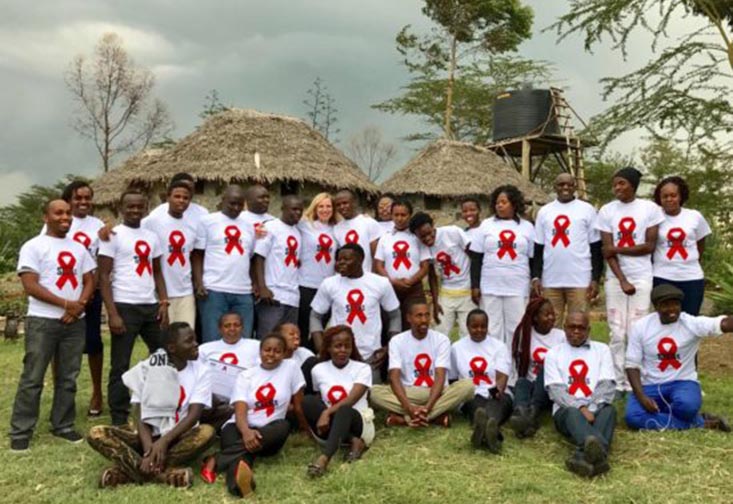Prior studies have shown that youth with HIV who have a greater understanding of their disease are more likely to seek treatment and stick with the often complex and time consuming medical regimen. For Tiffany Chenneville, Associate Professor of Psychology, researching the psychological issues affecting youth with HIV and developing an ethical framework that assesses their capacity for understanding the disease, making medical treatment decisions and being part of HIV research trials has been a career focus.
Earlier this semester, Chenneville received a Fulbright Specialist Award to continue her research in the area of HIV with the Perinatal HIV Research Unit, an affiliate of the University of the Witwatersrand in Johannesburg, South Africa. The Fulbright Specialist Award – which provides funds for research travel from two to up to six weeks – will allow her the opportunity to train medical faculty on HIV decisional capacity for treatment and research with minors.
“How much do kids understand HIV and how it impacts their own lives, and are they able to apply reasoning processes to make their own decisions in regards to treatment and services are important questions to be answered,” said Chenneville.
Chenneville will travel to South Africa from May 25 to June 13, 2018. Though the decisional capacity training is the primary focus, she hopes the trip will also initiate and build a lasting collaborative program with HIV researchers in the country.
“I want to be on the ground in this [research]unit talking to faculty members to get a better feel for the cultural context in relation to HIV treatment so that we can jointly collaborate to further each’s others research and training goals,” said Chenneville.
HIV (Human Immunodeficiency Virus) and AIDS (Acquired Immune Deficiency Syndrome) may not receive the primetime headlines they once did in the 1980s, but they still pose significant health risks in the U.S. and the world. According to the Centers for Disease Control and Prevention (CDC), more than 1.1 million people over age 13 in the United States are living with HIV, with nearly 15 percent undiagnosed. Florida is number one in new HIV infections in the nation.
The World Health Organization (WHO) reports that one million people died from HIV-related causes while nearly two million people became newly infected with the disease globally in 2016. Sub-Saharan Africa is ground zero, carrying close to 70 percent of the disease burden of HIV. Overall, the disease disproportionately affects the poor who often have little to no access to treatment.
Though these numbers look bleak, they do show positive trends compared to decades before due to medical advances in treatment and prevention measures, as well as work to lessen HIV and AIDS stigma.
“We have made some huge strides with HIV. We know how to treat it and with treatment it’s a chronic illness and not a deadly disease,” said Chenneville. “We know exactly what to do, but stigma and other barriers to testing and treatment remain.”
Chenneville’s interest in HIV research began in the early 90s when a friend was diagnosed with the disease. Since then, she has worked as a clinical and behavioral psychologist and researcher for more than 20 years.
In recent years, Chenneville has traveled to Kenya to work on the HIV SEERs (Stigma-reduction through Education, Empowerment, and Research) Project, a collaborative initiative between USF St. Petersburg and Springs of Hope Kenya, an orphanage for children affected by HIV. The community-based participatory research project seeks to address HIV-related stigma among youth with the disease. So far, the program has been delivered to nearly 2,000 youths between the ages of 13 and 24 in local schools and communities in Nakuru, Kenya.
Ultimately, Chenneville would like to establish an HIV youth ambassador program where those afflicted would travel to different parts of the world to conduct peer-led initiatives to reduce stigma surrounding HIV.
“I think it is really important for people with the lived experience of the disease to have a voice in this research, to act as research partners,” Chenneville said. “Those who actively participate feel valued for their involvement and the research implications from the study reach them faster.”
